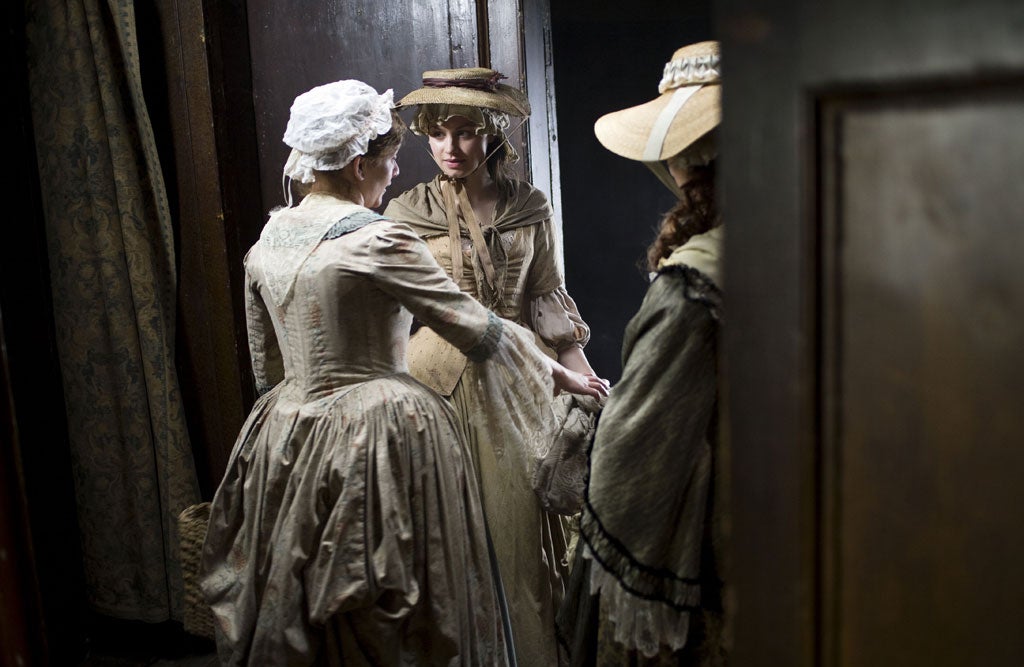Boyd Tonkin: Fifty Shades has topped all records - but rude books often lead the way

With straining limbs, tensed muscles and sweaty skin, toned bodies stretch and push towards the summits of physical endeavour, sometimes helped on by arcane technological aids but always urged towards their goal by an excited audience of millions. They break through the pain barrier and, after drawn-out minutes of suffering and constraint, hit that longed-for peak and collect the reward of a massive rush of endorphins. Yes, it's been a fabulous summer for EL James and Fifty Shades of Grey. I will leave it to the historians – or perhaps psychoanalysts – to tease out the connections between Olympic frenzy and the unstoppable popularity of James's SM trilogy. Every day, it seems, new records tumble.
The latest figures look mind-boggling. James's first book has sold in excess of 5.3 million copies in the UK, and the trio as a whole more than 12 million. Global sales of all English-language editions have topped 40 million. Susan Sandon, MD of the Random House division (Cornerstone) that publishes James, calls the phenomenon "perhaps one of the most extraordinary experiences of my entire publishing career and I feel privileged to be part of it".
Time, I think, to stand back and strap Fifty Shades into the remorseless machine of history. It isn't simply that sex sells, and always has. No advanced civilisation has ever lacked erotic art, high and low. More germane to this case is the evidence that erotica may often spearhead change in the technology and distribution of culture. James's novels have shown that an ebook success can cross over into torrential print sales, with neither platform detracting from the other. Publishers might study that interchange between digital and dead-tree markets, once they have stopped flooding the shops and sites with knock-off imitations of James's books. By the way, someone ought to point out that the executives of Britain's leading houses have peddled their innumerable Fifty Shades rip-offs with rather less dignity and transparency than the sort of cheerful teenager who flogs fake Fendi, Gucci and Prada in the night-markets of Bangkok and Kuala Lumpur.
The role of erotic books and images as drivers in the evolution of media goes back at least half a millennium. In the early 16th century, works such as Pietro Aretino's Sonneti Lussiriosi – sexy sonnets partnered by Giulio Romano's illustrations of acrobatic positions – taxed the skills of engravers and printers, and enjoyed underground success through Europe. In the France of Louis XIV and Louis XV, the novel grew in scope and sophistication thanks to libertine tales, with giants such as Laclos and Diderot merely figureheads in an erotic armada. Over the Channel, mass readership of fiction in England boomed in part thanks to stories of vice, not virtue. We remember a few landmarks of lubricity, such as John Cleland's Memoirs of a Woman of Pleasure (Fanny Hill) in 1748, but not the iceberg of torrid print beneath such famous tips. Erotica (however you define it) has whipped print culture from one innovation to another.
Beyond its blissful union of print and digital appeal, Fifty Shades contributes to this history in one other unignorable dimension. Women have of course authored erotic hits before, but usually in the dark. For decades critics maintained that The Story of O by "Pauline Réage" (ie Anne Desclos) was written by a man; Dr Brooke Magnanti (once known as Belle de Jour) met the same assumption. In the 1980s, Anne Rice wrote some of the most stylish of post-war erotic works, but under the pseudonyms of Anne Rampling and AN Roquelaure. "EL James" may not be the real name of Erika Leonard, but the age of routine subterfuge has passed. Mistresses of sultry prose may now stand proudly before their readers as middle-aged mothers-of-two from Bucks, not shadowy houris clad in Myla with penthouses in Paris. In principle, we should applaud. In practice, I suspect, Eros still loves a little mystery.
It's not just about the bike. What of the golden shot?
In 2008, cycling superhero Bradley Wiggins published his autobiography. With another golden haul (not to mention the Tour) another memoir rolls into view. The wheeled wonder has moved to Yellow Jersey Press for Bradley Wiggins: My Time, due on 8 November. Publishers cater amply for cycling fans. Might they do the same with lower-profile Olympians: say Peter Wilson, the shooting champ? The farmer's son was coached by Sheikh Ahmed Al -Makhtoum of Dubai, after all. I can see not just a book but a feelgood movie in that.
Australia's golden team of thinkers
Back in 1974, Clive James entitled his first collection of essays The Metropolitan Critic. The title set out James's stall as the public man of letters who speaks boldly to a broad audience reachable through magazines, newspapers or broadcasting, rather than as the academic specialist who aims to impress one tiny tribe. After Gore Vidal's passing, we have just lost another thoroughly metropolitan voice who married depth of learning with passionate accessibility. Robert Hughes was not merely a superb art critic but popular historian, cultural pundit and all-round light-footed heavyweight. Hughes hailed from the same country as not only James but the late Peter Porter – always so urbanely companiable as critic and poet – and indefatigable Germaine Greer. Post-war Australia sent a champion team of public intellectuals overseas. Who is training their successors?
Subscribe to Independent Premium to bookmark this article
Want to bookmark your favourite articles and stories to read or reference later? Start your Independent Premium subscription today.

Join our commenting forum
Join thought-provoking conversations, follow other Independent readers and see their replies